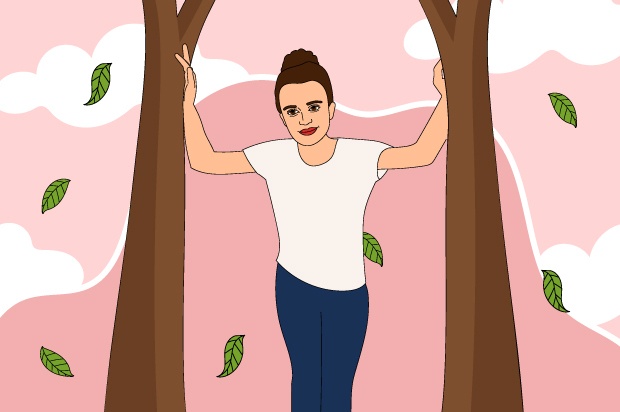April Kelley: Lockdown helped me come to terms with my mental health


(TW // references to difficulty with food and physical symptoms of bipolar disorder)
April Kelley is an award-winning actor and producer. She’s an ambassador for Bipolar UK and is passionate about LGBTQIA+ representation in film. This summer, she and her friend Lots Holloway created a documentary called A Summer on Ice that explored all that people lost and gained during lockdown. This article is about her experience.
What were you most scared about when entering lockdown?
My loved ones becoming infected with the disease, but this was a universal fear. Aside from that, it was my mental health. As someone living with bipolar disorder, I knew this would knock me sideways but I didn’t expect some of the ways it manifested, such as night terrors, passing out and physically struggling to keep any food down.
Did the extra time in lockdown help you practice any new kind of relationship with yourself and your body?
Oh wow! Surprisingly, a lot… it was the first time that I didn’t have an excuse for my mental illness…
There was no busy London life, no busy work schedule, so I sat in it and finally admitted to myself that I am mentally ill and that my bipolar disorder will be with me for the rest of my life. This realization really made me throw myself into therapy, which I previously used to avoid.
What is one thing you are happy that you did during lockdown?
I was very fortunate to stay very creative. I took a course in film sales and distribution, kept writing, dabbled with photography but ultimately the one thing that I did in lockdown that made me happy was spending time with my parents.
When staying with your parents, how were you able to create a space where you felt comfortable expressing and being yourself?
I’m very fortunate, my parents are amongst some of my best friends. Yes, they had to give up their dining room table for me to set up an office, but they got over that quickly. It was also the first time that they saw me live day-to-day with my bipolar disorder, which took a little more getting used to, but they were superb and together we’ve gained a better understanding.
Did you ever get angry and frustrated? If so, what helped you deal with these feelings?
Yes. But mainly with myself. I couldn’t run away from myself which I’m so good at. There were times where I felt like I was in quicksand and couldn’t see a way out. The rational part of my brain was yelling “C’mon April, you can do this!”, but my body was having none of it. Therefore, I took it day by day and when that was too much, hour by hour.
What’s one thing you lost during lockdown? How has that impacted you?
Work and money are the obvious ones. But in fact, it was my mental stability. I was having night terrors and panic attacks; I was scared to go to sleep so stayed up all night. I couldn’t eat and paranoia took over. I reacted very physically and you can see the impact that’s had on my body… But we’re all fighters and there’s always a light at the end of the tunnel.
What advice would you give to your 13-year old self?
You’ve got a rocky road ahead, April, but you’re stronger than you can ever imagine. You’re going to go on to achieve things you’re currently dreaming of. You’re not wrong that you’re feeling different to others – you’re bisexual (the flag you’ll be flying consists of your favourite colours). Oh, and you’re going to make it to 30 years old, I promise you.
Are you involved in activism? If so, what tips do you have for young people that want to become activists?
I’m the ambassador of Bipolar UK and am very open (loud) about my bisexuality… why? Because I wish I saw someone be so willing to emotionally expose themselves when I was growing up. That’s why my tip would be to pinpoint your passion and why you’re wanting to be a voice.
Understand that activism is needed to educate on topics which are not widely discussed, so be prepared for some negativity/push back and stay strong. Your voice matters and we need you.
If you need support with your mental health during lockdown
Our coronavirus hub page has a range of support and information regarding how to cope with mental health issues during lockdown.
You can get in touch with our team who are there to talk and to listen to anything that’s on your mind.
Find out more about Bipolar Disorder.
Next Steps
- Mind offers advice and support to people with mental health problems. Their helpline runs nine to six from Monday to Friday. 0300 123 3393
- If you're under 25 and would like free confidential telephone counselling from The Mix to help you figure things out complete this form and we'll call you to arrange your first session.
- Our Crisis Messenger provides free, 24/7 crisis support across the UK. If you’re aged 25 or under, you can text THEMIX to 85258
- Chat about this subject on our Discussion Boards.
By Simran Atwal
Updated on 03-Nov-2020
No featured article














